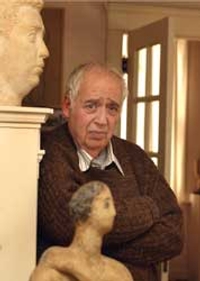Prolific literary critic, Yale professor and professional provocateur Bloom (The Book of J
) here tackles the characters of the Jewish and Christian gods: what god do we meet in Hebrew Scripture? Who is the Jesus of the New Testament, and does he bear any relation to the Jesus most Americans worship? Does, for that matter, the Hebrew Yahweh resemble the first person of contemporary Christians' Trinity? Bloom, as usual, skewers quite a few sacred cows—for example, he dismisses the quest for the historical Jesus as a waste of time, and says that Jewish-Christian dialogue is a "farce." But in fact Bloom's major points are somewhat commonplace, including his assertion that the Christian reading of Hebrew Scripture laid the groundwork for Christian anti-Semitism. A fair enough charge, but hardly a new one; theologians have observed, and debated, this point for centuries. Bloom's real brilliance lies in his smaller, subtler claims, such as his nuanced discussion of the different ways Matthew, Mark and Luke present Jesus, his assertion that Bible translator William Tyndale anticipated Shakespeare, and his observation that, contra Marx, religion is not the opiate of the people but their "poetry, both bad and good." The book is learned, even erudite, and sure to be controversial. (Oct. 6)


